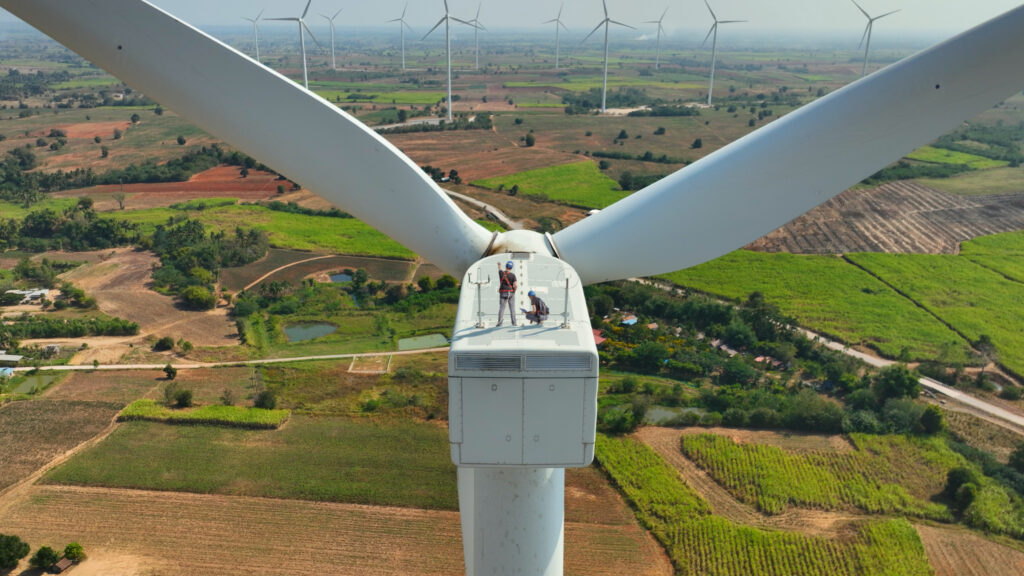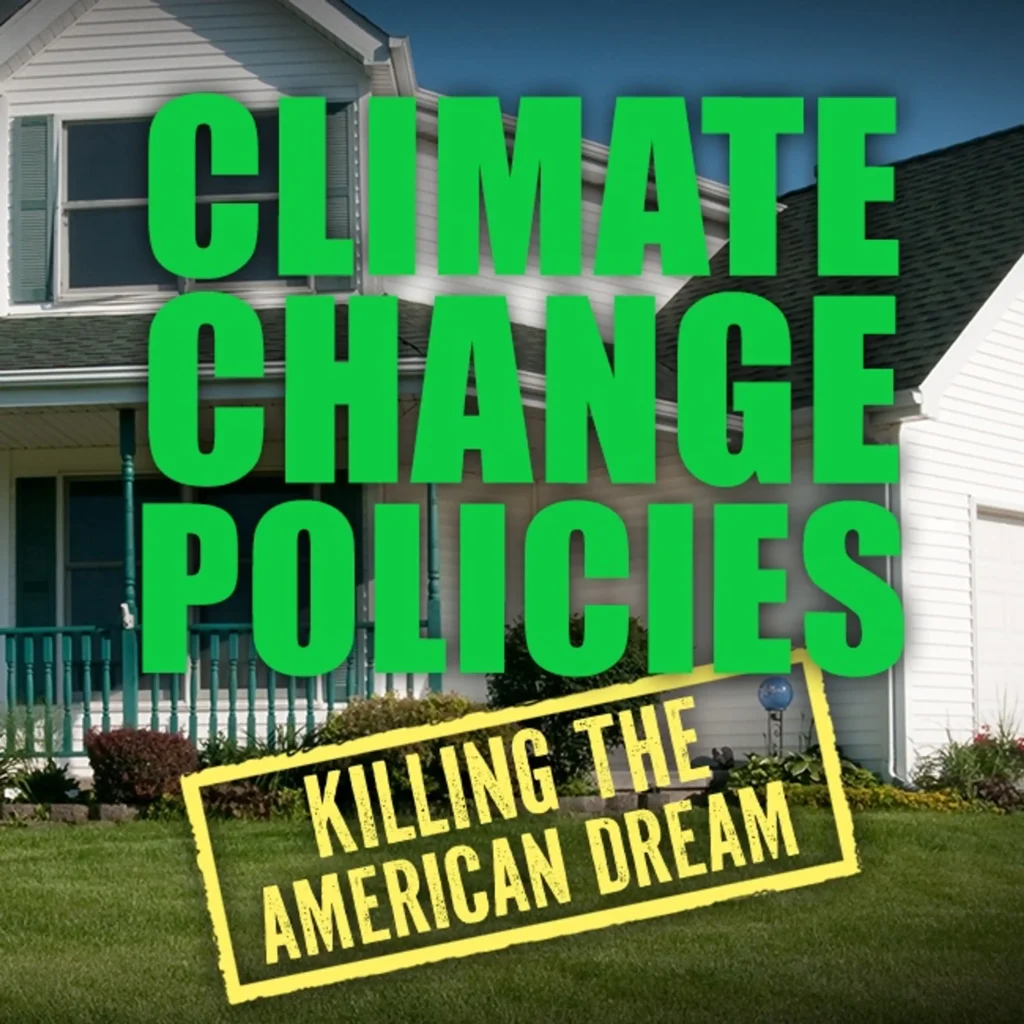A study published in March in Royal Society Open Science, a peer-reviewed journal claims that wind turbine and solar farms in California are making life significantly worse for nearly half of the “vulnerable” bird species that fly over them.
According to the study, 11 of 23 bird species, including barn owls, golden eagles, roadrunners, and yellow-billed cuckoos, “were either highly or moderately vulnerable [to wind and solar farms], experiencing a greater than or equal to 20% decline in the population growth rates with the addition of up to either 1,000 or 5,000 fatalities, respectively.”
“Effects of renewables extended far beyond the location of energy production to impact bird populations in distant regions across continental migration networks,” the study continues. “Populations of species associated with grasslands where turbines were located were most vulnerable to wind. Populations of nocturnal migrant species were most vulnerable to solar, despite not typically being associated with deserts where the solar facilities we evaluated were located. Our findings indicate that addressing declines of North American bird populations requires consideration of the effects of renewables and other anthropogenic threats on both nearby and distant populations of vulnerable species.”
Multiple studies published in 2013 and 2014 found that somewhere between 140,000 and 679,000 birds are killed by wind turbines annually. However, the American Bird Conservatory estimates at a minimum 681,000 birds are killed annually by turbines, thanks to an 86 percent increase in wind energy capacity in the United States from 2012 to 2021. They go on to note that “these estimates likely underestimate the true extent of the problem due to the fact that many bird fatalities escape human detection.” (Emphasis in the original.)
Wind is not the only culprit in bird fatalities. The Ivanpah Solar Power Facility in the Mojave Desert, for example, is responsible for incinerating around 6,000 birds annually.
Avian fatalities are not the only environmental concern when it comes to “renewable” energy sources. To dramatically ramp up wind and solar electricity generation to the point where the entire electrical grid in the United States is powered by wind and solar would “necessitate an unprecedented worldwide expansion in mining,” according to a Heartland Institute Policy Brief. “And those mining operations would rely primarily on fossil-fuel-powered heavy equipment, since battery-powered equipment for enormous industrial operations does not exist.”
These mining operations would also involve “removing and crushing hundreds of billions of tons of rock and ore, causing major habitat losses and widespread pollution,” according to the brief. “It would also create serious human health impacts, especially in countries that do not have modern equipment and health and safety protections.”
Among these mining operation would be those for rare earth elements (REE) such as dysprosium, indium, neodymium, and tellurium, which are necessary to produce wind turbines or photovoltaic solar panels. However, mining a single ton of these REEs, according to the brief, produces up to 420,000 cubic feet of toxic gases, 2,600 cubic feet of acidic wastewater, and a ton of radioactive waste. More than 70 percent of the world’s REEs are either mined in China, a totalitarian communist dictatorship with a dismal environmental and human rights record, or by companies under the control of the Chinese Communist Party.
Other materials needed to be mined to produce solar panels and wind turbines, as well as to produce the anticipated battery backups systems for these “renewable” sources, include lithium, cobalt, and copper. To store a week’s worth of electricity for the entire country when wind and solar aren’t generating it, the Heartland brief estimates would require “two billion half-ton battery packs similar to those used in Tesla automobiles.” Each of these batteries would require at least 26 pounds of lithium.
The cobalt needed for these batteries is mostly mined in the Democratic Republic of Congo, where more than 40,000 children currently labor in mining operations for pittance wages in unsafe and unhealthy conditions. Copper mining would also have to be dramatically expanded to meet the demand for 100 percent renewable generation, even though it takes roughly 125,000 pounds of mined, crushed, and refined ore to produce 1,000 pounds of finished copper.
Although the United States has proven reserves of these commodities, environmental policy at both the state and federal level have closed off most of these deposits from mining. Therefore, the brief argues, pushing for 100 percent renewable generation would increase our dependence for these minerals on China and “other countries that regularly disregard workplace safety, child labor concerns, land reclamation, and pollution controls.”
There are massive environmental tradeoffs in the large-scale use of wind and solar power, among them a substantial decrease in the amount of birds in our skies. Legislators should take this and other environmental concerns into account when debating on whether to promote wind and solar sources of energy.
The following documents provide more information about “renewable” energy sources.
Policy Brief: How the Green New Deal’s Renewable Energy Mining Would Harm Humans and the Environment
https://heartland.org/wp-content/uploads/documents/PBdriessenmining2Apr20.pdf
In this Heartland Institute Policy Brief, Paul Driessen, senior policy advisor with the Committee For a Constructive Tomorrow, argues expanding mining on the scale needed to meet the renewable energy requirements contained in the Green New Deal and other proposed renewable energy mandates would cause unimaginable harm to the environment, wildlife, and humans.
Policy Brief: Protecting the Environment from the Green New Deal
https://heartland.org/wp-content/uploads/documents/EnviHarmsPB.pdf
This Heartland Policy Brief by Paul Driessen, senior policy advisor with the Committee for a Constructive Tomorrow, reviews the largely ignored environmental damage that would result from the expanded use of renewable energy mandated under the Green New Deal.
Policy Brief: The Green New Deal: A Grave Threat to the American Economy, Environment, and Freedom
https://heartland.org/wp-content/uploads/documents/GreenNewDealPB.pdf
The Heartland Policy Brief argues the Green New Deal is a dangerous combination of environmental extremism and socialism. The tremendously expensive proposal would devastate the U.S. economy and cause more environmental destruction than protection. The provisions of the Green New Deal pose a dangerous threat to the American values of individual freedom and limited government.
The 100 Percent Renewable Energy Myth
https://www.instituteforenergyresearch.org/wp-content/uploads/2019/02/Renewable-Myth-Policy-Brief219.pdf
This Policy Brief from the Institute for Energy Research argues that a countrywide 100 percent renewable plan would put the U.S. economy in jeopardy. The brief investigates the intermittency, land requirements, capacity factors, and cost of transition and construction materials that limit the ability of the U.S. to adapt to 100 percent renewable energy.
The U.S. Leads the World in Clean Air: The Case for Environmental Optimism
https://files.texaspolicy.com/uploads/2018/11/27165514/2018-11-RR-US-Leads-the-World-in-Clean-Air-ACEE-White.pdf
This paper from the Texas Public Policy Foundation examines how the United States achieved robust economic growth while dramatically reducing emissions of air pollutants. The paper states that these achievements should be celebrated as a public policy success story, but instead the prevailing narrative among political and environmental leaders is one of environmental decline that can only be reversed with a more stringent regulatory approach. The paper urges for the data to be considered and applied to the narrative.
The Social Benefits of Fossil Fuels
https://heartland.org/publications-resources/publications/the-social-benefits-of-fossil-fuels
This Heartland Policy Brief by Joseph Bast and Peter Ferrara documents the many benefits from the historic and still ongoing use of fossil fuels. Fossil fuels are lifting billions of people out of poverty, reducing all the negative effects of poverty on human health, and vastly improving human well-being and safety by powering labor-saving and life-protecting technologies, such as air conditioning, modern medicine, and cars and trucks. They are dramatically increasing the quantity of food humans produce and improving the reliability of the food supply, directly benefiting human health. Further, fossil fuel emissions are possibly contributing to a “Greening of the Earth,” benefiting all the plants and wildlife on the planet.
Climate Change Reconsidered II: Fossil Fuels – Summary for Policymakers
https://heartland.org/publications-resources/publications/climate-change-reconsidered-ii-fossil-fuels—summary-for-policymakers
In this fifth volume of the Climate Change Reconsidered series, 117 scientists, economists, and other experts assess the costs and benefits of the use of fossil fuels by reviewing scientific and economic literature on organic chemistry, climate science, public health, economic history, human security, and theoretical studies based on integrated assessment models and cost-benefit analysis.
Nothing in this Research & Commentary is intended to influence the passage of legislation, and it does not necessarily represent the views of The Heartland Institute. For further information on this subject, visit Environment & Climate News, The Heartland Institute’s website, and PolicyBot, Heartland’s free online research database.
The Heartland Institute can send an expert to your state to testify or brief your caucus; host an event in your state; or send you further information on a topic. Please don’t hesitate to contact us if we can be of assistance! If you have any questions or comments, contact Heartland’s Government Relations department, at [email protected] or 312/377-4000.




